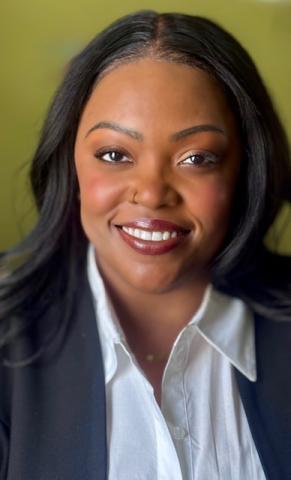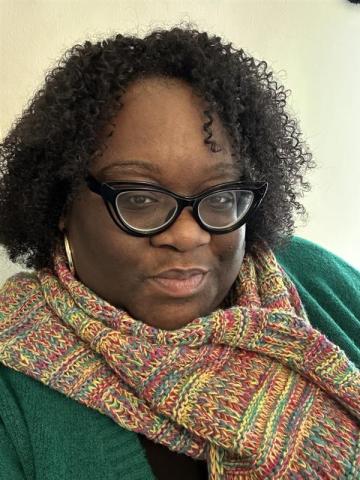Meet our new Senior Director of Behavioral Health
Q&A with Jan Ferdous, LCSW-C
After 17 years and many behavioral health positions at Health Care for the Homeless, Jan Ferdous is moving from Director to Senior Director of Behavioral Health this month! As Director, Jan oversaw behavioral health integration, developed the competency training program for behavorial health providers, strongly supported clinical learners, standardized processes to ensure quality care across sites and led the integration of telehealth visits during the early days of COVID-19. Get to know Jan and more about her position below.
You have been with Health Care for the Homeless for many years! What has your time here looked like?
I have been here for the last 17 years. I started my journey as a Therapist Case Manager in Housing Services. This was my first job out of graduate school, and I have been blessed ever since. Along the way I have been through many roles (e.g., therapist, lead, coordinator and Director) which helped me to gain pretty good understanding of the behavioral health program and confidence in leading the behavioral health division.
What lessons have you learned along the way?
The most valuable lesson I have learned is seeing clients through a trauma-informed lens, which is powerful and humbling. Every client I encounter is unique in their own ways, which is exciting to me. I wake up every day with enthusiasm to meet and serve clients which keeps me going. As a leader, I am a strong advocate in teamwork and believe we grow and learn from each other.
What are you most excited about in the change in scope from Director to Senior Director? What are some of the major differences?
While my clinical schedule won't change, the Senior Director position will expand my horizon and allow me to work closely with other teams. I am very excited for the opportunity to work closely with and oversee Case Management, SOAR and Community Health Workers. And to continue to work with seasoned therapists who are compassionate and dedicated to the work.
As an agency and in the behavioral health department, we’ve started to discuss the importance of understanding of racial trauma in the context of mental health (e.g., decolonalizing therapy practice). Can you talk about these concepts and what REI issues and opportunities you’re exploring to improve client care?
Racial trauma is the result of ongoing exposure to racial stress which includes racism, discrimination, violence against people of color and often depicting racial abuse in the media that creates an environment where a person of color feels unsafe due to the color of their skin. As we know, negative experiences in life shape our perception of life. These negative effects of racial discrimination cause various mental health symptoms, such as depression, anxiety, hopelessness, unstable behaviors, difficulty with trust, and avoidance to cope with stress, which, as therapists, we witness on a daily basis among clients.
I have facilitated department discussions around REI related-issues and we use supervision to educate staff on how to address racial trauma. The behavioral health department has attended in-house training on decolonizing therapy practice and we're planning on more trainings in the upcoming year. At the same time, I am mindful and working with HR to source and hire people of color for open positions.
Has behavioral health changed since the pandemic? What are some of the lasting implications for both providers and clients?
The pandemic has touched all of our lives in some form or shape. It's negatively affected many clients' mental health and created many challenges for clients already suffering from mental illness and substance use disorder. Since the pandemic our behavioral health providers are seeing increased depression, anxiety, substance use, grief and loss among clients. Therapists are working hard to help clients heal and manage their symptoms. It takes a toll on providers' own mental health and wellbeing as they push through these challenges while putting their own grief and loss on the side to help clients.
How do you find balance outside of work?
I am a very spiritual person. I love nature which is my source of healing and nature grounds me.
Give Jan a big congrats when you see her next!
More Recent News
We are thrilled to welcome Nikia Woodard, our new Director of Human Resources! With more than two decades of experience in the HR field, Nikia previously held leadership roles with the Maryland Transit Administration, Unified Women’s Healthcare and a behavioral health residential treatment facility for youth in Baltimore. Most recently, she served as Director of Employee Experience & Organizational Development at Loyola University Maryland, implementing university-wide professional development programs and encouraging a culture of continuous learning. Read on to learn more about Nikia (and her favorite snack)…
After a year of serving as Practice Manager of West Baltimore, Alkema Jackson is moving into the new role of Director of Practice Operations, Community Sites! She joined Health Care for the Homeless in 2022 as the Client Access Project Coordinator, collaborating across departments to help more people connect to agency services, and in 2023, she received a Core Value Award for Hope. Read on to learn more about Alkema’s approach to this new position…
Meet Christana Greene, our new Director of Compliance! With more than five years in the compliance field—most recently as Senior Quality and Patient Safety Specialist at GBMC Healthcare—Chrissy brings frontline insight to the role. She began her career as a medical assistant, gaining firsthand experience in what it takes to keep care safe and operations running smoothly. In her new role, Chrissy is focused on building a compliance culture grounded in safety, integrity and accountability. Read on to learn more about Chrissy...
Baltimore gets dangerously cold, and too many of our neighbors are out there. Here are three simple things you can do to make a difference in someone’s life this winter.




